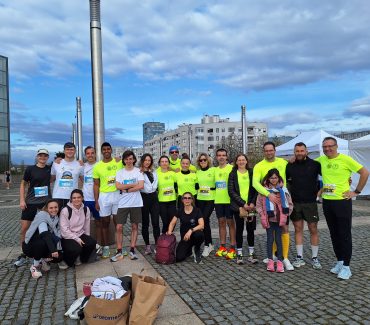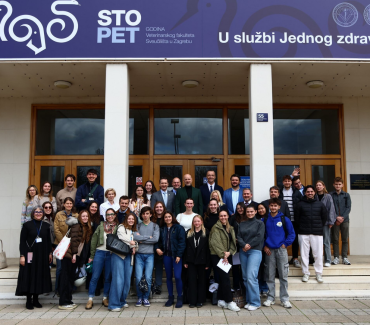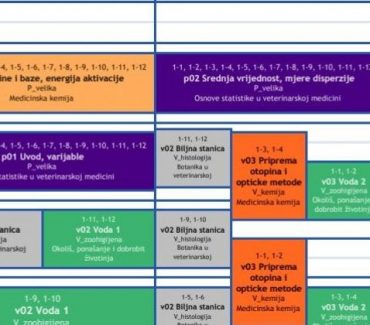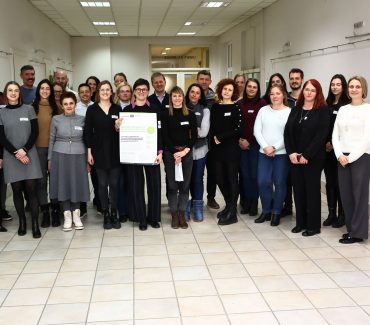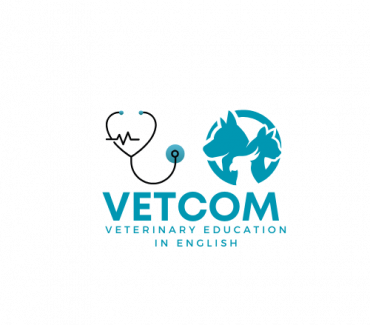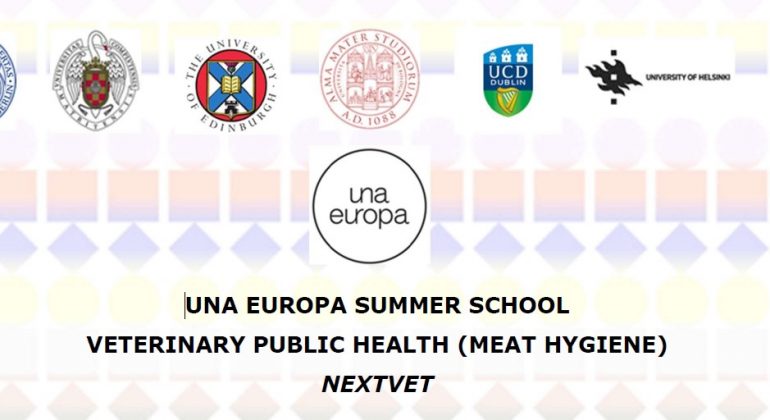
Dear students,
in June 2023, a Summer School in Veterinary Public Health (VPH) will be held as part of the UNA EUROPA project (https://www.una-europa.eu/focus-areas/one-health).
The Faculty of Veterinary Medicine of the University of Zagreb has secured a place for one student, so we invite you to apply.
Application conditions:
- full-time students of the 5th or 6th year of integrated undergraduate and graduate studies in Veterinary Medicine in Croatian or English
- grade point average of at least 4.0
- advanced knowledge of English language
Preference will be given to students who are enrolled in track Veterinary Public Health and Food Safety.
UNA Europa will pay for all student’s expenses during the Summer School. Travelling to Bologna and return will be covered by the Faculty of Veterinary Medicine Zagreb.
Application deadline: February 21st, 2023
Application selection: February 23rd, 2023
Please send your CV and motivation letter to: danijela.horvatek@vef.unizg.hr
Students participating in the initiative will be asked to:
- Prepare a short communication (with assistance from their sponsoring academic organisation) on the goals and activities of the Summer School and, on their return, will present it to other students at their institutions.
- Prepare an abstract on the Summer School to submit to the VetEd 2024 conference (https://vetedsymposium.org/), 1st week of July 2024.
- Present their findings in the plenary session where the external stakeholders and industry representatives will be invited to attend (June 30th, 2023)
Location
The Summer School will be held at the Department of Veterinary Medical Sciences, University of Bologna (UNIBO), Italy from 26th to 30th June 2023. Please see documents attached for more information.
Summer School programme
There will be 20 students admitted to the Summer School each from a different European country, one place will be reserved for a student from Ukraine.
Monday morning: Visit to UNIBO dairy and beef farm
Monday afternoon: Practical activity on monitoring, surveillance, risk assessment, and interpretation of test results
Tuesday morning: Visit to a commercial prosciutto crudo (dry ham) factory
Tuesday afternoon: Free time for team building in Bologna
Wednesday morning: Visit to a commercial beef processing facility
Wednesday & Thursday afternoon: Reflection and assignment activities
Thursday morning: Visit to a pork slaughterhouse
Friday morning: Visit to the UNIBO slaughterhouse and Students’ presentations and wrap-up
Friday afternoon: travelling arrangements
Goals of the Summer School:
- Use an innovative food animal systems approach (Berezowski et al, 2019) to consolidate veterinary students’ competencies in meat hygiene as preparation for their role in the profession. This contributes to the prevention of risks to public health.
- Ignite interest in European veterinary students, who struggle to see the relevance of working as a veterinarian in public health, by adopting an innovative and interdisciplinary approach to teaching and learning in a One Health context. Greater exposure of veterinary students to practical experience in VPH is key to enhancing their knowledge and engagement with the subject (Seguino, et al. 2021).
- Guarantee a harmonised training in VPH and meat hygiene through our multidisciplinary, European team of experts to facilitate the mobility of veterinarians across European countries. This aligns with the OIE recommendations on competencies of graduating veterinarians to assure a high level of quality of national veterinary services (OIE, 2012).
Innovative and interdisciplinary approach:
The innovative aspect to the Summer School is based on the use of complex system approach applied to food animal production as described by Berezowski (2019). The aim of experimental learning is to remove the boundaries between the classroom and the real-life work environment creating a constant, multidimensional learning ecosystem in which students will reflect on their practical experience (https://www.bu.edu/ctl/guides/experiential-learning/). Students will use these skills to generate new knowledge that aims at improving efficiency in the food supply chain in a holistic way. It will give the students the opportunity to consolidate their competences and gain interdisciplinary transferrable skills by demonstrating their ability to manage complex situations where information is incomplete and to deal with contingencies. They will have to adapt to contexts they are not familiar with while interacting with food business operators, other students (peer-support) and animals, pushing them to think on their feet and create interdisciplinary solutions to real-life problems. The students will acquire a range of skills in a farm-to-fork context connecting real-life work experience in food animal production set-ups like livestock farming, slaughterhouses, and meat processing establishments (Alban et al, 2020). For each on-site activity, students will be given focused tasks to perform in groups or individually to stimulate a critical thinking attitude to link all the steps of production and its interdisciplinary context. At the end of the Summer School, students will be able to: (1) observe the working environment and prioritise data collection, (2) perform a risk assessment based on the collected data, (3) extract and synthetise relevant concepts and information, (4) make suggestion for improvement of the process, and (5) communicate the results to a diverse audience. To complement on-site visits to food producing establishments, we will use the Virtual Slaughterhouse Simulators to expose the students to additional authentic real-case scenarios.

 Faculty of
Faculty of 